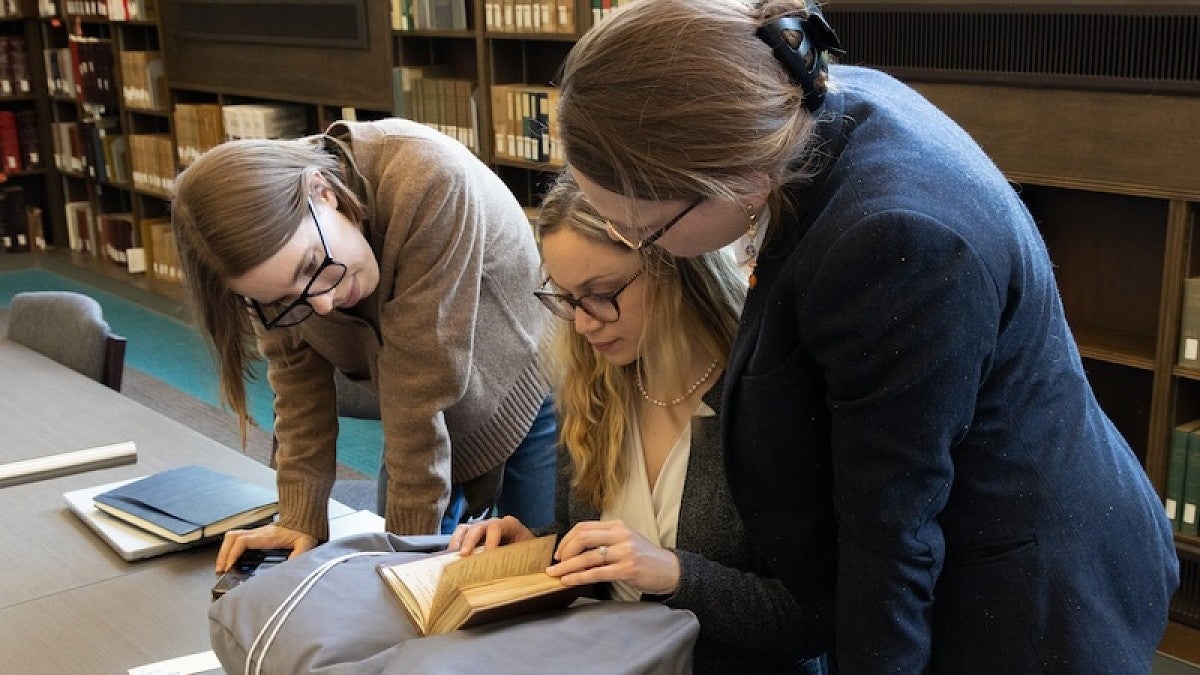
In 2013, while writing her doctoral dissertation, Mattie Burkert discovered something that would become a passion project for her and a major contribution to the study of 18th century theater in London: the beginnings of the London Stage Database.
The London Stage Database is a groundbreaking digital catalog of 52,000 action-packed nights at the theater in London during the 18th century. The main source for the project is “The London Stage, 1660-1800,” an 11-book reference series tracking historical materials such as the titles and cast lists for each evening’s entertainments, ticket-sales figures and critical commentary. The books, developed in the 1960s, were digitized in the 1970s using a mainframe computer, but the technology became obsolete, and the project was abandoned.
—Mattie Burkert, Principal Investigator and Associate Professor of English and Director of the Digital Humanities Minor
Since discovering the abandoned digitization project, Burkert, now an associate professor of English and director of the digital humanities minor in the College of Arts and Sciences, has been working on developing support for and building the database. She has a team of international collaborators, all working to recover the remaining data from the 1970s project and to expand access to the history it represents.
“It takes constant effort to keep the resource up to date and be responsive to users’ changing needs,” Burkert says. “We want to ensure it reflects the field’s evolving knowledge about the subject matter, and it’s become my life’s work.”
In 2018, Burkert received a Digital Humanities Advancement grant from the National Endowment for the Humanities to officially launch the London Stage Database as a free-to-use website with a modern search interface. The resource, which peer reviewers have called field-changing, has taken on central importance for scholars, librarians and archivists who study and preserve the history of British literary and performance cultures.
Then, in 2024, the NEH awarded $350,000 for the continued development of the London Stage Database. The grant supported principal investigator Burkert, one graduate and one undergraduate student at UO; costs such as hosting services at the UO; librarians and IT software developers at the UO; and an interdisciplinary, international team of researchers, librarians and technology developers from the US, Canada and the UK.
On April 3, 2025, Burkert received notice that her NEH grant was being terminated because the agency was repurposing its funding allocations. The London Stage Database was one of more than 1,400 projects affected, according to data gathered by the Association for Computers in the Humanities.
The American Council of Learned Societies, Modern Language Association and American Historical Association — all of which the University of Oregon belongs to as a member — filed a lawsuit in federal court on May 1, 2025, seeking to restore the grant, along with many others.
While the lawsuit plays out in court, Burkert is continuing to seek funding to help sustain essential activities. She recently secured internal funding through UO’s Office of the Vice President of Research and Innovation.
“While it doesn't make the project whole, it goes a long way towards bridging critical operations and keeping the core scholarship alive,” she said.
Burkert is also working to raise awareness around the issue of diminished funding for humanities projects. She will chair a panel at a national conference in the spring called "New Work Using the London Stage Database." The panel features researchers and creatives who are using the database to support their own work in different ways.
She also had an essay proposal accepted for “Debates in the Digital Humanities,” a flagship state-of-the-field edited collection. The essay is about how those in the field can remain resilient and rally around their values when such a significant funding apparatus has been dismantled.
For more information about the London Stage Database’s contents, and the scholarly process for securing and verifying archival materials, read this interactive and expanded story published in June 2025.
—By Jenny Brooks, College of Arts and Sciences
